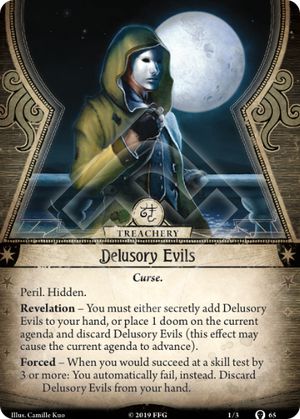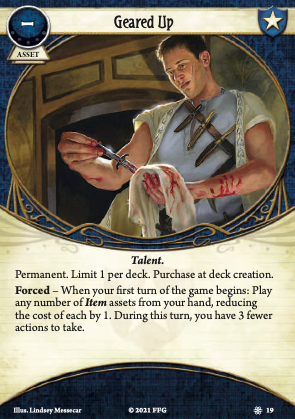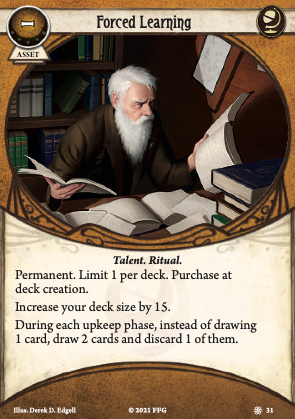
This card is regularly considered rather a joke replacement for Ancient Evils. And in general, it really is. Except for Minh Thi Phan, for whom it is kind of Kryptonite.
If she has The King in Yellow out, she really should consider to rather take the doom. And even if not, it will get really painful, if she doesn't get rid of this treachery, before she draws the tome. (I've been there!) As a peril card no can protect her from it. Should have probably considered A Test of Will to mitigate this card. But paying for exile cards is harsh, if your main class is and the level 0 version is also not great, if you have to commit 3 cards to it. And it would even whiff, if you succeed by 3 or more.




